-
Hi Guest!
The costs of running this forum are covered by Sea Lion Press. If you'd like to help support the company and the forum, visit patreon.com/sealionpress
You are using an out of date browser. It may not display this or other websites correctly.
You should upgrade or use an alternative browser.
You should upgrade or use an alternative browser.
Breaking the Mould Redux: A Wikibox Timeline
- Thread starter Lucon50
- Start date
Just catching up with this, it's a great read. I like the detail on the Government's early policies (e.g. earlier entry into EMS, bringing back incomes policy, supply side interventions) and the different camps within the Alliance. It will be interesting to see how these ideological and personal tensions play out.
I suspect that a lot will depend on the economy and Rodgers as Chancellor, if a stimulus and pay policy don't produce the expected results then I could see people like Jenkins, Owen, Patten et cetera calling for a more 'Social Market' approach, drawing on some of the OTL ideas of the Social Market Foundation, established by ex-SDP members.
There's also a question of how far the parties' identities survive and whether there's continued pressure from the grassroots and some party members to develop more distinctive policies. But that's likely to get very messy because as you describe the issues and personalities cut across both parties so it's not just a 'Liberal versus SDP' fight. I suspect that you might see more 'ginger' groups/factions pop up within the Coalition formalising these different views.
Few minor thoughts:
I suspect that a lot will depend on the economy and Rodgers as Chancellor, if a stimulus and pay policy don't produce the expected results then I could see people like Jenkins, Owen, Patten et cetera calling for a more 'Social Market' approach, drawing on some of the OTL ideas of the Social Market Foundation, established by ex-SDP members.
There's also a question of how far the parties' identities survive and whether there's continued pressure from the grassroots and some party members to develop more distinctive policies. But that's likely to get very messy because as you describe the issues and personalities cut across both parties so it's not just a 'Liberal versus SDP' fight. I suspect that you might see more 'ginger' groups/factions pop up within the Coalition formalising these different views.
Few minor thoughts:
- Earlier entry into the EMS means that the Government may have to restrict spending to protect the pound or devalue, depending on the rate. The 'social democratic' faction of the Alliance may be faced with difficult choices about what they can invest in (as their French partners were doing) which may fuel the arguments above;
- Will be interesting to see how long Whitelaw remains as leader given that he was drinking a lot in office and had a stroke I think in 1985;
- Heseltine wrote a good book after he resigned over Westland called 'Where There's A Will' on his political ideas, talks about industrial strategy, decentralisation, support for privatisation, his support for immigration and racial equality, and Europe;
- Surprised to see Gordon Brown jump to the Alliance as I think he was still on the soft-left at this point, as author of Red Scotland not long prior to this, but then again it's possible that he re-assesses much quicker than OTL given the scale of the political upheaval;
- The knock-on effects of Britain not replacing Polaris on the Reagan administration and negotiations with the USSR could be interesting.
Thanks for the support and interesting comments! First of all, I agree that the economy and jobs figures will be central to the Alliance's prospects over the coming 4 or 5 years. Williams and Rodgers here are inclined to go big on public spending, while Jenkins is perhaps more fiscally restrained. Many of the early policies you described are Jenkinsite, revealing his hold on the SDP in coalition. As we progress though, you might see bolder measures in the fight against unemployment and poverty. Rodgers looks very safe in the chancellorship. The basic map I've got for Alliance camps right now is as follows: Liberals and Jenkinsites (pushing for social liberalism, moderate Keynesianism); Williams/Owen faction (radical centrist social democrats); Rodgers in between; and the ex-Tory wets (broadly liberal). As you can tell, the Owenites are presently outgunned even despite Williams' popularity. But it's a fine line and her group certainly benefited from the defection of 15 Labour MPs recently.Just catching up with this, it's a great read. I like the detail on the Government's early policies (e.g. earlier entry into EMS, bringing back incomes policy, supply side interventions) and the different camps within the Alliance. It will be interesting to see how these ideological and personal tensions play out.
I suspect that a lot will depend on the economy and Rodgers as Chancellor, if a stimulus and pay policy don't produce the expected results then I could see people like Jenkins, Owen, Patten et cetera calling for a more 'Social Market' approach, drawing on some of the OTL ideas of the Social Market Foundation, established by ex-SDP members.
There's also a question of how far the parties' identities survive and whether there's continued pressure from the grassroots and some party members to develop more distinctive policies. But that's likely to get very messy because as you describe the issues and personalities cut across both parties so it's not just a 'Liberal versus SDP' fight. I suspect that you might see more 'ginger' groups/factions pop up within the Coalition formalising these different views.
Few minor thoughts:
- Earlier entry into the EMS means that the Government may have to restrict spending to protect the pound or devalue, depending on the rate. The 'social democratic' faction of the Alliance may be faced with difficult choices about what they can invest in (as their French partners were doing) which may fuel the arguments above;
- Will be interesting to see how long Whitelaw remains as leader given that he was drinking a lot in office and had a stroke I think in 1985;
- Heseltine wrote a good book after he resigned over Westland called 'Where There's A Will' on his political ideas, talks about industrial strategy, decentralisation, support for privatisation, his support for immigration and racial equality, and Europe;
- Surprised to see Gordon Brown jump to the Alliance as I think he was still on the soft-left at this point, as author of Red Scotland not long prior to this, but then again it's possible that he re-assesses much quicker than OTL given the scale of the political upheaval;
- The knock-on effects of Britain not replacing Polaris on the Reagan administration and negotiations with the USSR could be interesting.
You're right for pointing out one impact of the EMS on currency. One option that springs to mind is for the British government to favour taxes over borrowing, drive public spending to fuel private investment and explore future technologies to corner. The question of Europe will absolutely challenge all 3 main party blocs in due course. On Whitelaw, I'll refrain from spoilers but let's just say his unity leadership is beginning to show serious cracks. Much of his success depends on the various wings, left to right, playing ball as he tries to find a compromise policy on everything! Heseltine is hanging around on the front benches while sponsoring pressure group articles, so he'll want to be ready to influence the Conservatives' direction if and when Whitelaw retires. It seems that Heseltine shared a great deal of views with your average Alliance politician. Very much on board with developing the post-war consensus without running to Thatcherism. As for Brown, he and Blair have moved to the SDP because, as you mentioned, they've formed opinions based on Britain's political realignment. In OTL, 1990s New Labour picked up from where Jenkins and Owen left off, in terms of devolution, human rights, the Third Way and pro-market ideas. Plus, Williams is fairly well-liked on the Labour soft left aside from Shore & co.
I will touch on Polaris and world events soon, including US and European elections. The special relationship, knocked by disunity over Las Malvinas, survives with a sceptical friend to Reagan's White House in David Steel. Owenites are pretty Atlanticist. Most looking forward to writing about the new tribes in Britain's coming Parliaments and the next general election. As ever, feedback is more than welcome! Story ideas and predictions too
Last edited:
Social Democrats entered conference season much as they had in 1981 and 1982: victory in alliance with their Liberal partners, now together in government, inspired an ebullient mood. Discussion of policy was friendly; everyone sensed that the party was at the beginning of a great undertaking. Buoyed by good will and media buzz, delegates went by train in another rolling conference through the country, from London to Scotland and back via Bradford to Central Hall in Westminster. Journalists quipped that the party was "on the move". A spirit of comradeship, there might have been; however, differences of opinion persisted in debates around the SDP's future direction and purpose. Roy Jenkins, one of the Gang of Four and now Lord President (responsible for chairing meetings of the Privy Council) had a clear view in mind. From the outset, Jenkinsites had sought to establish a third force of the 'radical centre'. The SDP would appeal across a broad spectrum to: disillusioned moderates in the Conservative and Labour parties; to ex-Liberals; and non-partisan voters. The three other founding members (deputy prime minister and party leader Shirley Williams, chancellor Bill Rodgers and foreign secretary David Owen) had their own ideas. Against much resistance, Mrs Williams dreamed of creating a modern party "of conscience and reform", similar to the efforts of Hugh Gaitskell to change Labour in the 1950s. The SDP ought to replace Labour on the left, rather than compete from the centre, in order to appeal to disaffected egalitarian people like herself. Mr Jenkins was proven correct on the likely base of support - while grassroots members were generally left-of-centre, in 1979 they had split three ways with 27% voting Tory, 36% Labour and 35% Liberal. SDP activists favoured the leadership's vision of a party advancing radical change; ordinary supporters preferred more moderate reform. Minor differences arose on the topics of private schools (with roughly 20% for integrating them into the public sector), a wealth tax and the closed shop. The party was, though, remarkably united on questions of policy. Unilateral nuclear disarmament was heavily rejected. Members embraced a central role in Europe and NATO, a statutory incomes mechanism, the status quo on nationalisation, compulsory secret ballots for the trade unions and election of workers to company boards.
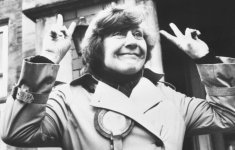
The Council for Social Democracy met in September 1983 amid a flurry of excitement and optimism. On day 1, representatives discussed the proposal of a merger with the Liberal Party. Development minister and ex-Tory Christopher Brocklebank-Fowler put forward a motion to endorse the current state of affairs, in a bid to exercise autonomy and block a Liberal takeover which could dilute the SDP's identity. Mr Steel's party desired stronger links in the Alliance, now that they were at a high-water mark. An option to select candidates for election on the basis of 'joint closed selection' - i.e. having every constituency either Liberal-led or SDP-led, with both parties' members allowed to pick the individual - conformed to how the agreement had worked until that point. Proponents of a merger favoured another method, 'joint open selection' - no seats allocated to either party, with Liberal and SDP candidates going in front of members from both sides to compete for their backing. Williams and Owen vetoed this, arguing that a sizably bigger Liberal membership would flood the Alliance and turn the SDP into junior partners with few opportunities to gain representation in a future electoral contest. It was agreed at conference to have regional allocation for 70 seats in the upcoming 1984 European elections, so that both Alliance parties would get a chance to win seats. With an eye to the prospect of voting reform, SDP delegates endorsed the negotiated settlement for general elections: Liberals and Social Democrats would meet locally in groups of (perhaps multi-member) constituencies, to decide which party would fight which seats and how they'd be chosen. Both parties were happy. In a nod to the range of feeling across the Alliance, Owen replied "never say never" when asked about a merger with the Liberals, but personally ruled it out until after the next election. Steel's party found the foreign secretary's acolytes to be quite hostile to closer cooperation. Ordinary Alliance members disliked the bickering. In the main, though, a positive atmosphere carried the day with Brocklebank-Fowler's motion passed and unity on the Government's new legislative agenda.
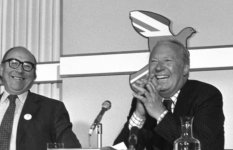
Owen paid tribute to Steel afterwards: "Friendship holds the key to it all. That is why I will never allow the press and media, who only want to report division, to drive a wedge between the Prime Minister and myself. I say to David how much I know every single SDP member wants him at the forefront of the British political scene." Plaudits from the audience. Education secretary Roy Hattersley praised the initiatives Alliance ministers were achieving together. "Between us we can do what the country needs. We are demonstrating unity." Former Conservative PM Ted Heath was surprised by the level of popularity and warmth he received at fringe events, for his part in the 1983 election triumph by appealing to soft Tories. Despite his "brusqueness, his gaucherie, his lack of small or indeed any talk, his sheer bad manners" according to a journalist years later, Mr Heath had revived his career. By virtue of his contribution to a packed-out Q&A session with Jenkins, it was clear the SDP president had usurped 1982 leadership hopeful Ian Gilmour as the figurehead of ex-Conservative defectors. When it finally came to the party leader's address, the sparkling tone of euphoria was hard to miss. People rose to cheer, stamped their feet and applauded. After a long standing ovation, Williams finished waving, beaming. Determined to encourage her reputation for boldness and decisiveness, she proclaimed no doubt in the Alliance's potential: "This is not for us a party but a crusade, an alternative to the old extremism of politics in Britain, the move in the Labour Party towards the rejection of parliamentary democracy and the Conservative legacy of a level of unemployment that threatens the very fabric of our society." She argued that Benn espoused a "fascism of the left". The SDP and Liberals were engaging in a "common enterprise". Everyone was full of hope. The Alliance parties stemmed from different traditions with separate identities but they shared a common interest in "Britain's political and economic future". Inviting the Prime Minister on stage with her, Mrs Williams jubilantly asserted that theirs would be a "great reforming government" with change at its heart.
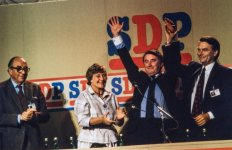

The Council for Social Democracy met in September 1983 amid a flurry of excitement and optimism. On day 1, representatives discussed the proposal of a merger with the Liberal Party. Development minister and ex-Tory Christopher Brocklebank-Fowler put forward a motion to endorse the current state of affairs, in a bid to exercise autonomy and block a Liberal takeover which could dilute the SDP's identity. Mr Steel's party desired stronger links in the Alliance, now that they were at a high-water mark. An option to select candidates for election on the basis of 'joint closed selection' - i.e. having every constituency either Liberal-led or SDP-led, with both parties' members allowed to pick the individual - conformed to how the agreement had worked until that point. Proponents of a merger favoured another method, 'joint open selection' - no seats allocated to either party, with Liberal and SDP candidates going in front of members from both sides to compete for their backing. Williams and Owen vetoed this, arguing that a sizably bigger Liberal membership would flood the Alliance and turn the SDP into junior partners with few opportunities to gain representation in a future electoral contest. It was agreed at conference to have regional allocation for 70 seats in the upcoming 1984 European elections, so that both Alliance parties would get a chance to win seats. With an eye to the prospect of voting reform, SDP delegates endorsed the negotiated settlement for general elections: Liberals and Social Democrats would meet locally in groups of (perhaps multi-member) constituencies, to decide which party would fight which seats and how they'd be chosen. Both parties were happy. In a nod to the range of feeling across the Alliance, Owen replied "never say never" when asked about a merger with the Liberals, but personally ruled it out until after the next election. Steel's party found the foreign secretary's acolytes to be quite hostile to closer cooperation. Ordinary Alliance members disliked the bickering. In the main, though, a positive atmosphere carried the day with Brocklebank-Fowler's motion passed and unity on the Government's new legislative agenda.

Owen paid tribute to Steel afterwards: "Friendship holds the key to it all. That is why I will never allow the press and media, who only want to report division, to drive a wedge between the Prime Minister and myself. I say to David how much I know every single SDP member wants him at the forefront of the British political scene." Plaudits from the audience. Education secretary Roy Hattersley praised the initiatives Alliance ministers were achieving together. "Between us we can do what the country needs. We are demonstrating unity." Former Conservative PM Ted Heath was surprised by the level of popularity and warmth he received at fringe events, for his part in the 1983 election triumph by appealing to soft Tories. Despite his "brusqueness, his gaucherie, his lack of small or indeed any talk, his sheer bad manners" according to a journalist years later, Mr Heath had revived his career. By virtue of his contribution to a packed-out Q&A session with Jenkins, it was clear the SDP president had usurped 1982 leadership hopeful Ian Gilmour as the figurehead of ex-Conservative defectors. When it finally came to the party leader's address, the sparkling tone of euphoria was hard to miss. People rose to cheer, stamped their feet and applauded. After a long standing ovation, Williams finished waving, beaming. Determined to encourage her reputation for boldness and decisiveness, she proclaimed no doubt in the Alliance's potential: "This is not for us a party but a crusade, an alternative to the old extremism of politics in Britain, the move in the Labour Party towards the rejection of parliamentary democracy and the Conservative legacy of a level of unemployment that threatens the very fabric of our society." She argued that Benn espoused a "fascism of the left". The SDP and Liberals were engaging in a "common enterprise". Everyone was full of hope. The Alliance parties stemmed from different traditions with separate identities but they shared a common interest in "Britain's political and economic future". Inviting the Prime Minister on stage with her, Mrs Williams jubilantly asserted that theirs would be a "great reforming government" with change at its heart.

Last edited:
On 23 September, over a thousand party members convened for the 1983 Liberal Assembly in Harrogate. For the first time in 61 years, they met as foot-soldiers of a UK-wide government with Liberal ministers and their elected leader as premier. David Steel's standing in the movement was towering, on a par with that of David Lloyd George at his height. Commanding though he was, the famously independent-minded grassroots activists wished to stamp their mark on the new administration, paired as they were with the SDP, about whom some had reservations for being too managerial and centralising. The Gang of Four were present; Liberal members gave Shirley Williams and Roy Jenkins, in particular, an enthusiastic welcome for helping to accomplish a long-held goal: to break the stifling Conservative/Labour grip on Westminster and introduce a fresh start for progressives everywhere around Britain. A minority of Mr Steel's base were happier to influence political action from the outskirts, protesting against illiberal decisions and keeping their hands clean from the grubby business of decision-making. The new Prime Minister objected in the strongest possible terms to this. He was ambitious and saw the necessity of cooperation across tribal lines in order to lead by example in changing the whole system. This difference of opinion certainly prompted suspicions from several quarters. Was Steel a closeted Labour man, more relaxed with the likes of Bill Rodgers than non-conformist dissenters in his own party? Did he share their aspirations or would he like to shed the more radical, distinctive elements of liberal philosophy? Such questions were unlikely to go away but, for now, the PM commanded his flock. Even figures critical of the SDP, such as Cyril Smith or back-bench MP for Streatham Bill Pitt, were either at the vanguard of policy-making in Steel's team or quietly upheld the deal with Mrs Williams' party, given the breadth of gains as a direct result of the Alliance. Radical liberals, comparative left-wingers who valued social justice and a devolutionary commitment to liberty and small government, made up a good chunk of MPs and even greater swathes of the membership. It was for this reason that Steel recognised the importance of keeping all wings of the party satisfied as he began his modernising endeavour in charge of the British state.
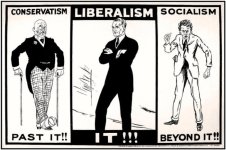
As with their coalition partners, wrangling among Liberals centred around tactics and strategy, rather than any irreconcilable disputes over policy. While few voters cared about the process of allocating electoral candidates, for instance, active supporters devoted either to the idea of pooling resources or keeping the SDP at arm's length had reason to care about the balance of strength inside the Alliance. The Liberal Party had an advantage for now, with Steel in Number 10, but the growing power of Social Democrats in the Commons and across the UK with new recruits alarmed sceptics in Harrogate. Indeed, proponents of a future merger (the PM included) tried to retain Liberal seniority by calling for joint open selection. When the SDP's luminaries dismissed the notion for the time being, it fell on Alliance loyalists at the Liberal Assembly to carve out another focus: energetic discussion, unique ideas on every subject from education to foreign affairs, and the foundations of a distinct, lasting policy agenda. Motions for the Government to turn down US cruise missiles on British soil and cancel the nation's Polaris weapons programme raised the eyebrows of Mr Steel along with Liberal defence hawk and minister David Penhaligon. On the SDP aisle, David Owen was especially annoyed by their allies' stubborn unilateralism. His party had not left Labour over its dogmas only to re-engage with similar aims in the young Alliance. Nonetheless, the Prime Minister made it apparent that he would not follow a course of one-sided disarmament, restating the Coalition's official policy to keep Polaris on the table in the upcoming 1984 Geneva talks and strive for multilateral disarmament. "Today, the discussions stand at a critical point. Our European allies welcome British pressure for constructive disarmament proposals. As a candid friend to President Reagan, I have told him bluntly that we do not regard Cold War provocations in Latin America as being the first line in the defence of human freedom."
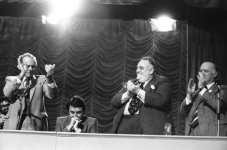
In his speech to the Liberal Assembly, Steel addressed the recent peace settlement with Buenos Aires. "We will of course resume direct discussions with the Argentine for the long term future of the Falkland Islands. In the meantime, we should welcome any help from the UN or the Organisation of American States to establish international guarantees of their security." Moving to the domestic front, he attacked conservatism: "Tory economic policies stem from a crude political philosophy that we Liberals find socially irresponsible and wholly unacceptable." Willie Whitelaw's party had been captured by "privateers" intent on selling off national assets for the City of London's narrow benefit. In 1979, Steel had argued that the challenge to Liberals was to recreate a union of idealists, progressives and radicals: "We have to bring together into one political movement those on whom the Labour party has turned its back - the poor, the unemployed, the libertarians driven by opposition to socialism into the Tory camp. And from the other side the moderates whose ideas the Conservative leadership has now decisively rejected." His agenda included electoral reform, worker participation and profit-sharing in industry, help for small businesses and a fusion of the social security and tax systems. "We are forced... to combine if we would succeed." To electric applause from the faithful, the Liberal leader invited Assembly delegates to "advance new plans and ideas which draw upon the traditions of liberalism and social democracy to solve the crisis of our time. Like Keynes and Beveridge in their day we must be innovative and ambitious." The emphasis was on a pairing of ideology with their SDP allies. "We must prove the doubters wrong by being prepared to put forward bold and radical plans for the renewal of Britain." In a fiery peroration, Steel urged activists to "take our campaign... into every home in this country, with a message that will rekindle the hope which Tory policies have done so much to destroy." The feeling in the room was electric, glowing. "In my first speech to you as leader in 1976, I said that the road I intended us to travel back to power would be a bumpy one. And indeed we have climbed some rough terrain together. But look where we’ve got to. First we must be confident. Second we must be united. Third we must be far-sighted. Our party and our Alliance have an historic role to play in the renewal of Britain. It is our duty. It is expected of us. There is no limit to what we can achieve together if we believe in each other and in our cause."
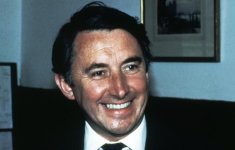

As with their coalition partners, wrangling among Liberals centred around tactics and strategy, rather than any irreconcilable disputes over policy. While few voters cared about the process of allocating electoral candidates, for instance, active supporters devoted either to the idea of pooling resources or keeping the SDP at arm's length had reason to care about the balance of strength inside the Alliance. The Liberal Party had an advantage for now, with Steel in Number 10, but the growing power of Social Democrats in the Commons and across the UK with new recruits alarmed sceptics in Harrogate. Indeed, proponents of a future merger (the PM included) tried to retain Liberal seniority by calling for joint open selection. When the SDP's luminaries dismissed the notion for the time being, it fell on Alliance loyalists at the Liberal Assembly to carve out another focus: energetic discussion, unique ideas on every subject from education to foreign affairs, and the foundations of a distinct, lasting policy agenda. Motions for the Government to turn down US cruise missiles on British soil and cancel the nation's Polaris weapons programme raised the eyebrows of Mr Steel along with Liberal defence hawk and minister David Penhaligon. On the SDP aisle, David Owen was especially annoyed by their allies' stubborn unilateralism. His party had not left Labour over its dogmas only to re-engage with similar aims in the young Alliance. Nonetheless, the Prime Minister made it apparent that he would not follow a course of one-sided disarmament, restating the Coalition's official policy to keep Polaris on the table in the upcoming 1984 Geneva talks and strive for multilateral disarmament. "Today, the discussions stand at a critical point. Our European allies welcome British pressure for constructive disarmament proposals. As a candid friend to President Reagan, I have told him bluntly that we do not regard Cold War provocations in Latin America as being the first line in the defence of human freedom."

In his speech to the Liberal Assembly, Steel addressed the recent peace settlement with Buenos Aires. "We will of course resume direct discussions with the Argentine for the long term future of the Falkland Islands. In the meantime, we should welcome any help from the UN or the Organisation of American States to establish international guarantees of their security." Moving to the domestic front, he attacked conservatism: "Tory economic policies stem from a crude political philosophy that we Liberals find socially irresponsible and wholly unacceptable." Willie Whitelaw's party had been captured by "privateers" intent on selling off national assets for the City of London's narrow benefit. In 1979, Steel had argued that the challenge to Liberals was to recreate a union of idealists, progressives and radicals: "We have to bring together into one political movement those on whom the Labour party has turned its back - the poor, the unemployed, the libertarians driven by opposition to socialism into the Tory camp. And from the other side the moderates whose ideas the Conservative leadership has now decisively rejected." His agenda included electoral reform, worker participation and profit-sharing in industry, help for small businesses and a fusion of the social security and tax systems. "We are forced... to combine if we would succeed." To electric applause from the faithful, the Liberal leader invited Assembly delegates to "advance new plans and ideas which draw upon the traditions of liberalism and social democracy to solve the crisis of our time. Like Keynes and Beveridge in their day we must be innovative and ambitious." The emphasis was on a pairing of ideology with their SDP allies. "We must prove the doubters wrong by being prepared to put forward bold and radical plans for the renewal of Britain." In a fiery peroration, Steel urged activists to "take our campaign... into every home in this country, with a message that will rekindle the hope which Tory policies have done so much to destroy." The feeling in the room was electric, glowing. "In my first speech to you as leader in 1976, I said that the road I intended us to travel back to power would be a bumpy one. And indeed we have climbed some rough terrain together. But look where we’ve got to. First we must be confident. Second we must be united. Third we must be far-sighted. Our party and our Alliance have an historic role to play in the renewal of Britain. It is our duty. It is expected of us. There is no limit to what we can achieve together if we believe in each other and in our cause."

Last edited:
The Labour Party's autumn 1983 conference kicked off in Brighton at the start of October. Freshly elected deputy leader Neil Kinnock sought to demonstrate a positive image to media onlookers. "We can enjoy fraternity between socialists and we must enjoy fidelity to socialism," he told delegates representing the grassroots, MPs and trade unions. "Mrs Thatcher presided over and continued with policies which have brought industrial tragedy to this country... the people made the Conservatives pay for that. They lack substance or conviction and they have been rejected." In a Britain of stubbornly high unemployment, Mr Kinnock drew attention to the madness of three million homes lacking basic amenities or needing major repair, while 500,000 construction workers were out of a job. Labour called for a major increase in public investment, including transport, housing and energy conservation, and in industry, especially in new technology - "with public enterprise taking the lead". He vowed Labour would raise child benefits, increase pensions and spend more on education, social services and the NHS. In essence, this was very similar to the Alliance's draft legislation. The bulk of Labour MPs (coming from a tradition of social democracy) shared a Keynesian approach to tackling the economy. Once new leader Tony Benn rose to give his speech, the mood was altogether more divided. He eloquently described the widening gulf between rich and poor. "The last time, we were limited in the scope of the changes we wished to make." In the post-Michael Foot era, Labour resolved to eliminate inequality by addressing the source, capitalism. Benn argued for real democracy, ending the constitutional powers of the monarchy and the unelected positions of judges, and the full mobilisation of the labour movement to argue for socialism. But, he warned, a capitalist class threatened with the loss of its power and privileges would view democracy differently. Shadow chancellor Eric Heffer spoke extensively about the reasons for and benefits of the Alternative Economic Strategy (AES) in protection of the ordinary family vs. predatory moneyed interests.
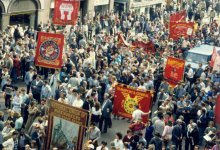
Another feature of 1983 was the advance of Militant, a revolutionary socialist group trying to push Labour to the left and support working-class interests. Labour’s right wing attempted in vain to completely expel five members of the Militant Editorial Board at the party conference. Although the move was steamrollered through by reactionary union leaders, 80% of constituency Labour Party delegates at the conference voted against and the ‘Militant Five’ were given a standing ovation. The city of Liverpool had witnessed a major strike of 20,000 workers against privatisation of the council’s refuse and street cleaning services. Alliance control of the local administration narrowed in the 1983 council elections with Labour gaining 3 seats won by Militant supporters. Benn championed its programme of "no privatisation, a £2 rent cut, no spending cuts, a massive housing repairs programme, thousands of new council houses and jobs, and no rate rises to compensate for Tory-Liberal cuts!" Radical-left candidates such as Terry Fields succeeded in the 1983 general election; however, the Alliance sea change in British politics blocked the efforts of others from Militant, for example Dave Nellist. In Parliament, Fields announced: "The media and my political opponents... in seeking to denigrate me and the socialism I stood for, made great play of the label 'militant'. Let me make my position clear. I wear the badge of a militant with honour, and do not forget that a militant is only a moderate who has got up off his knees. In time, the whole of the working class will arise from their knees, and you will not be laughing then." With the group firmly behind his leadership, Benn stressed the problems of youth unemployment and industrial decline. "Our enemies are still the same: a capitalist class determined to enrich its power and privileges at the expense of working people, and those layers in the labour and trade union movement who defend that system, rather than challenging it." These words received a glittering response from party members who had elected him in droves; 'moderates' on the Labour right in Parliament either boycotted the conference or huffed and voiced opposition from the sidelines, much as David Owen had done a few years before. A majority were still loyal to the movement but could not participate in Benn's radical project of democratisation. At the end of the Brighton conference, together comrades sang The Red Flag, the Labour Party anthem and popular socialist hymn of the workers.
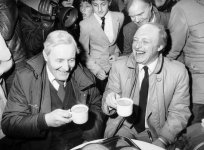

Another feature of 1983 was the advance of Militant, a revolutionary socialist group trying to push Labour to the left and support working-class interests. Labour’s right wing attempted in vain to completely expel five members of the Militant Editorial Board at the party conference. Although the move was steamrollered through by reactionary union leaders, 80% of constituency Labour Party delegates at the conference voted against and the ‘Militant Five’ were given a standing ovation. The city of Liverpool had witnessed a major strike of 20,000 workers against privatisation of the council’s refuse and street cleaning services. Alliance control of the local administration narrowed in the 1983 council elections with Labour gaining 3 seats won by Militant supporters. Benn championed its programme of "no privatisation, a £2 rent cut, no spending cuts, a massive housing repairs programme, thousands of new council houses and jobs, and no rate rises to compensate for Tory-Liberal cuts!" Radical-left candidates such as Terry Fields succeeded in the 1983 general election; however, the Alliance sea change in British politics blocked the efforts of others from Militant, for example Dave Nellist. In Parliament, Fields announced: "The media and my political opponents... in seeking to denigrate me and the socialism I stood for, made great play of the label 'militant'. Let me make my position clear. I wear the badge of a militant with honour, and do not forget that a militant is only a moderate who has got up off his knees. In time, the whole of the working class will arise from their knees, and you will not be laughing then." With the group firmly behind his leadership, Benn stressed the problems of youth unemployment and industrial decline. "Our enemies are still the same: a capitalist class determined to enrich its power and privileges at the expense of working people, and those layers in the labour and trade union movement who defend that system, rather than challenging it." These words received a glittering response from party members who had elected him in droves; 'moderates' on the Labour right in Parliament either boycotted the conference or huffed and voiced opposition from the sidelines, much as David Owen had done a few years before. A majority were still loyal to the movement but could not participate in Benn's radical project of democratisation. At the end of the Brighton conference, together comrades sang The Red Flag, the Labour Party anthem and popular socialist hymn of the workers.

Last edited:
4,000 representatives gathered in the resort town of Blackpool a week later for the one-hundredth Conservative Party conference, under the headline, 'Defending Britain's Future'. New chairman Francis Pym, a mainstay of the Tory left, promised to the cameras a party united around Willie Whitelaw's leadership. The most obvious problem facing him was a gathering of schisms threatening to cause havoc. The Conservatives by late 1983 broke into three groups: liberals and moderates, personified by Michael Heseltine, who were close to the SDP in political outlook; the traditional right, paternalistic and 'One Nation' on the economy with a focus on social security; and monetarists, increasingly seen as disciples of Enoch Powell and recovering traction in the Monday Club. Whitelaw did his best to court the old right within a big tent of supporters, by unveiling a raft of proposed measures aimed at offering relief for family budgets. These included higher but means-tested welfare provision, guarantees of decent housing and the expansion of grammar schools. However, his messaging was undercut by revoking another pledge: to explore tax cuts, particularly for lower-income workers, funded by reductions in government spending. This U-turn prompted a burst of criticism from Norman Tebbit, whose ilk lobbied for the party to go further in campaigning for privatisation and de-regulation of the economy. The leadership found valuable assistance in the Conservative ranks. Even defeated MP John Biffen, ordinarily a Powellite, said on a news broadcast that he thought the Tories would find it difficult either to cut public expenditure or introduce lower taxes. "I don't think that anybody looking at the pattern of public spending can believe that there is scope for savage reductions in the totality," he said. Pym agreed. Treasury spokesman Norman Fowler refused to adopt Mr Tebbit's ideas. It looked impossible to assure laissez-faire tax-cutters while keeping the left and middle of the party on board.
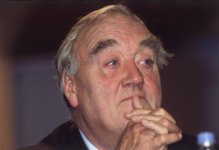
Perennial Conservative troubleshooter Mr Whitelaw struggled to calm his party due to the extent of feuding. He took steps to shore up the loyalty of pragmatic ex-Thatcherites, with Nigel Lawson rallying their base. A future Tory government would implement sound money and balance the government finances, while its ambition of bringing the national debt down remained. Michael Heseltine grew estranged from the unity leadership and monetarists over the course of autumn, preferring an unapologetic state-led programme of investment. By the time of conference, his gang of corporatists were privately demanding that Whitelaw and Pym exclude the Tebbit faction (represented by the Conservative Workers' Group) from influence and "win back the trust of good people" flocking to the Alliance. In return, Whitelaw got senior members of the party's left to endorse and argue for his compromise policy agenda on stage to representatives in Blackpool. Surveys indicated that a party wedded to free enterprise, British nationalism, public spending cuts and Victorian morals would have little electoral backing, with 8% of voters in favour. Tebbit rubbished the polling and accused the Conservative Party of abandoning its voters, opposing Whitelaw's efforts "to reposition the party on the 'left of the middle ground'". At a conference fringe meeting, well-known hardliner Cecil Parkinson (another who had lost his seat) called for the leadership to "defend and build upon the achievements of the Conservative Party under Margaret Thatcher's leadership, and to adapt the principles of her era in government to modern concerns and challenges". It largely fell on deaf ears. The New Right experiment had resulted in electoral disaster; yes, economic growth had been returning with inflation down, yet no amount of justification for the continuation of that strategy held up against soaring unemployment and the Falklands humiliation. Tebbit became persona non grata for Heseltine and, over time, for the front bench in general. Whilst a vacuum opened up on the hard right, for now arch-monetarists of the privatising creed had nowhere to go.
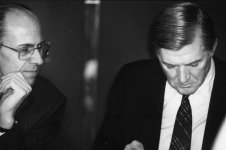

Perennial Conservative troubleshooter Mr Whitelaw struggled to calm his party due to the extent of feuding. He took steps to shore up the loyalty of pragmatic ex-Thatcherites, with Nigel Lawson rallying their base. A future Tory government would implement sound money and balance the government finances, while its ambition of bringing the national debt down remained. Michael Heseltine grew estranged from the unity leadership and monetarists over the course of autumn, preferring an unapologetic state-led programme of investment. By the time of conference, his gang of corporatists were privately demanding that Whitelaw and Pym exclude the Tebbit faction (represented by the Conservative Workers' Group) from influence and "win back the trust of good people" flocking to the Alliance. In return, Whitelaw got senior members of the party's left to endorse and argue for his compromise policy agenda on stage to representatives in Blackpool. Surveys indicated that a party wedded to free enterprise, British nationalism, public spending cuts and Victorian morals would have little electoral backing, with 8% of voters in favour. Tebbit rubbished the polling and accused the Conservative Party of abandoning its voters, opposing Whitelaw's efforts "to reposition the party on the 'left of the middle ground'". At a conference fringe meeting, well-known hardliner Cecil Parkinson (another who had lost his seat) called for the leadership to "defend and build upon the achievements of the Conservative Party under Margaret Thatcher's leadership, and to adapt the principles of her era in government to modern concerns and challenges". It largely fell on deaf ears. The New Right experiment had resulted in electoral disaster; yes, economic growth had been returning with inflation down, yet no amount of justification for the continuation of that strategy held up against soaring unemployment and the Falklands humiliation. Tebbit became persona non grata for Heseltine and, over time, for the front bench in general. Whilst a vacuum opened up on the hard right, for now arch-monetarists of the privatising creed had nowhere to go.

Last edited:
Extensive consultation and some white paper reports later, the PM and his deputy introduced another ream of draft laws to much fanfare at a press conference in October. The Electoral Reform Bill, holy grail for David Steel's tribe after decades in the wilderness and SDP ministers with the zeal of converts, started its passage through the House of Commons with 350 ayes to 244 nays and 54 mainly Tory abstentions. The legislation detailed a change to the general election system from first-past-the-post (a 'winner takes all' method) to single transferable vote (a method of proportional representation). Constituencies would be based entirely on subdivisions and local authority areas, each electing 5 MPs; this would give a high level of proportionality, while maintaining a strong local connection. Rather than hand total victory only to the most popular candidate in each seat, the new system would allow people to rank candidates in order of preference at the ballot box. To fill seats, surplus preferences are transferred until a winner is found. If seats still remain to be filled, the least popular candidates would be eliminated and vote transfers shared until enough candidates are declared elected. No one party would be likely to dominate any of the 100+ five-member super-constituencies proposed, as every party would get fair representation. The share of seats gained by the parties in Parliament would reflect their support among the voters. A single party would not be able to gain a parliamentary majority unless it secured nearly 50% of the votes. The Prime Minister emotively hailed it as "the centrepiece of our work to transform Britain for good".

Next, Shirley Williams reiterated the SDP's 12-point programme from its launch on to the scene back in March 1981. In addition to "breaking the mould" and "fair elections", the commitments included: new policies to create jobs, allegiance to the mixed economy, a fairer distribution of wealth, environmental action and greater de-centralisation in the process of decision-making. "Everything we are doing in government rests on a new approach to politics." She unveiled contents of the Industrial Democracy Bill, a bold piece of draft law providing for the introduction of worker participation at all levels. There would be incentives for employee share-ownership, employee rights to information and an Industrial Democracy Agency (IDA) to advise on and monitor the roll-out of these measures. Its early passage through Parliament was secured by 342 ayes to 306 nays. MORI held an opinion poll showing Liberal/SDP at 36.5%, Labour 33% and Conservative 28.5%. This estimated an upturn in support for Tony Benn's party at the Alliance's expense, with the Tories dipping for months but now stabilising. On the whole, the British public were willing to give Mr Steel and Mrs Williams' new ministry a fighting chance to boost the economy, rescue industry and create jobs. Mr Benn had the advantage of a fairly united membership after the desertion of many right-wingers, yet undecided voters across the prosperous home counties truly feared a socialist Labour government. Willie Whitelaw's dogged attempts to re-position his party away from the previous administration began to meet with success among these very people. For the majority of urban and middle-income voters, though, the Alliance held firm. Household names filled the Cabinet, ranging from veterans of the 1970s Heath and Wilson/Callaghan governments to a cohort of keen Liberal outsiders including several radicals. A different kind of thinking from years prior would be needed to fix Britain's list of maladies on the road of reconstruction.


Next, Shirley Williams reiterated the SDP's 12-point programme from its launch on to the scene back in March 1981. In addition to "breaking the mould" and "fair elections", the commitments included: new policies to create jobs, allegiance to the mixed economy, a fairer distribution of wealth, environmental action and greater de-centralisation in the process of decision-making. "Everything we are doing in government rests on a new approach to politics." She unveiled contents of the Industrial Democracy Bill, a bold piece of draft law providing for the introduction of worker participation at all levels. There would be incentives for employee share-ownership, employee rights to information and an Industrial Democracy Agency (IDA) to advise on and monitor the roll-out of these measures. Its early passage through Parliament was secured by 342 ayes to 306 nays. MORI held an opinion poll showing Liberal/SDP at 36.5%, Labour 33% and Conservative 28.5%. This estimated an upturn in support for Tony Benn's party at the Alliance's expense, with the Tories dipping for months but now stabilising. On the whole, the British public were willing to give Mr Steel and Mrs Williams' new ministry a fighting chance to boost the economy, rescue industry and create jobs. Mr Benn had the advantage of a fairly united membership after the desertion of many right-wingers, yet undecided voters across the prosperous home counties truly feared a socialist Labour government. Willie Whitelaw's dogged attempts to re-position his party away from the previous administration began to meet with success among these very people. For the majority of urban and middle-income voters, though, the Alliance held firm. Household names filled the Cabinet, ranging from veterans of the 1970s Heath and Wilson/Callaghan governments to a cohort of keen Liberal outsiders including several radicals. A different kind of thinking from years prior would be needed to fix Britain's list of maladies on the road of reconstruction.

Last edited:
For clarity's sake, here's my explanation of PR copied from another site:
X% of votes equals roughly X% of seats - i.e. a proportional representation of the votes cast. Handfuls of constituencies would be merged into regions with perhaps 5 vacancies each. This means the top 5 candidates in each area can win election. The people rank candidates and when someone hits the 50% threshold to win first place, the voters' second, third etc preferences get distributed to fill the remaining seats. What the UK has instead is an arguably outdated and skewed system, in which a government can win a majority of MPs on say 35% of the votes! Therefore, PR is fairer and in this case, with the STV method, keeps that local connection with MPs we hear so much about.
Helpful I hope!
X% of votes equals roughly X% of seats - i.e. a proportional representation of the votes cast. Handfuls of constituencies would be merged into regions with perhaps 5 vacancies each. This means the top 5 candidates in each area can win election. The people rank candidates and when someone hits the 50% threshold to win first place, the voters' second, third etc preferences get distributed to fill the remaining seats. What the UK has instead is an arguably outdated and skewed system, in which a government can win a majority of MPs on say 35% of the votes! Therefore, PR is fairer and in this case, with the STV method, keeps that local connection with MPs we hear so much about.
Helpful I hope!
Last edited:
As MPs debated the Government's flagship legislative agenda, the Prime Minister turned his attention to cooperation with the UK's closest international partners. On 26 September, a false nuclear alarm incident in the USSR had energised the spectre of a conflict unlike any other with mutual destruction around the globe. Determined to encourage disarmament and fend off annihilation before it was too late, David Steel visited the capitals of allies in Europe over the following month, starting with France and West Germany. Talks with François Mitterrand and Helmut Kohl resulted in an understanding of the seriousness in front of them; Steel left feeling that progress was being made ahead of the 1984 summit. Back in London, news of a coup in the Commonwealth nation of Grenada troubled ministers. In response to an appeal by the Organisation of Eastern Caribbean States, the US led a ground invasion of the island. Britain strongly criticised the move, joined by Canada, Trinidad & Tobago and the UN. The operation succeeded and democratic elections resumed afterwards; however, it badly damaged UK-US relations, still hurt by the Falklands episode. Civilians on the island were torn on whether America had rescued them from corruption or foreclosed the possibility of socialist development in the context of a history littered with exploitation. Steel landed in Washington DC to meet president Ronald Reagan. They shook hands before the British diplomatic mission were guided past a line of US soldiers for a tour of America's capital. Reagan and Steel got down to business in the White House, aware that the 'special relationship' forged in WWII and cemented by Reagan's ideological affinity with Margaret Thatcher would have to be nurtured with the arrival of a new occupant in Downing Street and rocky events. The two men presented gifts to each other and discussed the subject of foreign affairs. Steel explained his position that before deciding whether or not to oppose the deployment of US Cruise missiles in Britain, the Alliance Government would take account of the negotiating position of the Soviet Union and the attitude of NATO partners in Europe. He raised Falklands and Grenada, pointing out that British loyalty in the Cold War required the same from America. Reagan expressed his intention to boost ties for the future, highlighting the importance of both men finding common ground.

On his return home, the PM telephoned Yuri Andropov to seek assurances on the USSR's nuclear policy. Reagan's aggressive stance had worsened Cold War tensions, threatening to pull Britain and other NATO members into a dangerous bipolar conflict. Heightened US defence spending provoked an equivalent response from Moscow (compounded by Soviet military aid to partners) despite economic weakness and civil unrest in the Warsaw Pact bloc. Andropov had announced the end of space-based weapons development in summer 1983. This gave Steel the impression of a leader he could engage with. He asked Andropov to continue arms control negotiations with the US, promising that Britain would play her full part in furthering disarmament. Alliance ministers retained the goal of a nuclear-free zone in Europe. However, there was little unity between Washington and Moscow over missile presence on the Continent. Consequently, British efforts to reach a scaling back of deployments met with failure for the time being. Public anti-war sentiment and the American foreign interventions of 1982-83 led to Steel cancelling US weapons on UK soil. The first missiles due to arrive at RAF Greenham Common were rejected, vindicating protesters there. It was a signal to the world that Britain would no longer accept US diktats on Cold War policy when the risk of escalation was so frightening. On 7 November, the Able Archer scare enabled foreign secretary David Owen to voice the UK's disarmament goals and implore each side to come to a diplomatic solution. Two weeks later, ABC aired controversial TV film The Day After, which explored the reality of a nuclear war on the US population. It was screened in the White House, having a notable impact on Reagan. From that stage, he and Mr Steel would form a closer relationship on the issue and make strides with the USSR towards peace.

This freed up Alliance ministers to address political and economic questions on the Continent. The Liberals and SDP urged integration without delay and "a British lead in Europe". Government policy included: building links with the rest of the North Sea gas-fields to pool resources; commitment to the NATO target for strengthening conventional forces in Europe; a shared initiative to register the sale of arms to nations in the Global South; British adoption of proportional representation for the 1984 direct elections to the European Parliament; greater involvement of said body in the appointment of the Commission; and an expansion of EEC activity on regional and social policies, industrial innovation, conservation and renewable energy development. Speaking to the press following telephone discussions with foreign leaders, the Prime Minister accepted "the need for an increase in community revenues on a more diversified and fairer basis". He described these as "important policies which will help to solve the British budget problem, help solve some of Europe's most chronic difficulties such as the imbalance of wealth and development between regions, and switch the balance of Community activities more directly in line with Britain's needs." Steel vowed to take a lead in advocating the development of new policies where Europe "has everything to gain from standing together", covering employment, trade and common defence. Movement towards the Alliance's legacy of ever-deeper integration would happen over the duration of its term in office.
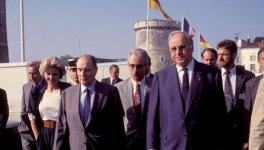

On his return home, the PM telephoned Yuri Andropov to seek assurances on the USSR's nuclear policy. Reagan's aggressive stance had worsened Cold War tensions, threatening to pull Britain and other NATO members into a dangerous bipolar conflict. Heightened US defence spending provoked an equivalent response from Moscow (compounded by Soviet military aid to partners) despite economic weakness and civil unrest in the Warsaw Pact bloc. Andropov had announced the end of space-based weapons development in summer 1983. This gave Steel the impression of a leader he could engage with. He asked Andropov to continue arms control negotiations with the US, promising that Britain would play her full part in furthering disarmament. Alliance ministers retained the goal of a nuclear-free zone in Europe. However, there was little unity between Washington and Moscow over missile presence on the Continent. Consequently, British efforts to reach a scaling back of deployments met with failure for the time being. Public anti-war sentiment and the American foreign interventions of 1982-83 led to Steel cancelling US weapons on UK soil. The first missiles due to arrive at RAF Greenham Common were rejected, vindicating protesters there. It was a signal to the world that Britain would no longer accept US diktats on Cold War policy when the risk of escalation was so frightening. On 7 November, the Able Archer scare enabled foreign secretary David Owen to voice the UK's disarmament goals and implore each side to come to a diplomatic solution. Two weeks later, ABC aired controversial TV film The Day After, which explored the reality of a nuclear war on the US population. It was screened in the White House, having a notable impact on Reagan. From that stage, he and Mr Steel would form a closer relationship on the issue and make strides with the USSR towards peace.

This freed up Alliance ministers to address political and economic questions on the Continent. The Liberals and SDP urged integration without delay and "a British lead in Europe". Government policy included: building links with the rest of the North Sea gas-fields to pool resources; commitment to the NATO target for strengthening conventional forces in Europe; a shared initiative to register the sale of arms to nations in the Global South; British adoption of proportional representation for the 1984 direct elections to the European Parliament; greater involvement of said body in the appointment of the Commission; and an expansion of EEC activity on regional and social policies, industrial innovation, conservation and renewable energy development. Speaking to the press following telephone discussions with foreign leaders, the Prime Minister accepted "the need for an increase in community revenues on a more diversified and fairer basis". He described these as "important policies which will help to solve the British budget problem, help solve some of Europe's most chronic difficulties such as the imbalance of wealth and development between regions, and switch the balance of Community activities more directly in line with Britain's needs." Steel vowed to take a lead in advocating the development of new policies where Europe "has everything to gain from standing together", covering employment, trade and common defence. Movement towards the Alliance's legacy of ever-deeper integration would happen over the duration of its term in office.

Last edited:
In November, the Coalition published its Devolution Bill. Minister for political reform Mike Thomas explained in Westminster that the law would establish a Scottish Parliament with powers to assist economic development and raise taxes, but not run a budget deficit. The suggested remit of authority was based on the 1969 Kilbrandon Commission, i.e: education, environment, health, home affairs, legal matters and social services. Agriculture, fisheries and food policy would be shared between the Scottish and UK governments. The new body would consist of about 100 representatives in multi-member constituencies and elected under the single transferable vote form of PR being proposed at the time for general elections. The bill would create a Scottish Executive, headed by a First Minister. It also spelled out provisions for a framework of Welsh and English regional assemblies subject to public demand. This would be expressed via referenda called by the UK Government if it appeared likely that a majority of those voting favoured devolution. Additionally, the bill called for a regional network of economic development agencies, accountable (together with existing authorities) to committees of a reformed Star Chamber. Mr Thomas spearheaded the legislation, in tandem with Scottish secretary Robert Maclennan and his Welsh counterpart Geraint Howells. They received overwhelming support from Liberal MPs; however, SDP colleagues were more at odds. Junior defence minister Bob Mitchell led resistance with backbenchers Bruce Douglas-Mann and George Cunningham, famed for introducing his amendment to the 1979 Scottish referendum which scuppered earlier progress. The few rebels were offset by nationalist MPs from the SNP and Plaid Cymru, who voted with the Government. Mitchell was forced to resign his role given a breach of collective ministerial responsibility. The bill passed its initial reading with 330 ayes (including 10 from Labour) to 287 nays. Conservatives and Labour spoke up furiously against any cession of decision-making ability from Westminster. If signed into law, devolution would bring about a fundamental reform to the constitution while, significantly, reserving unstipulated powers with the UK Parliament. More radical plans to decentralise policy across England and Wales could wait, as Mrs Williams was especially conscious that her party contained a number of views on the issue, making the Government's 43-seat majority in the House of Commons relatively volatile.

Steel and Williams also held ambitions to bring peace to Northern Ireland, the province carved off from its southern republican neighbour as a British colony and beset by violence that had grown out of all control in recent decades. The Government would adopt a non-sectarian approach predicated on sustaining the Assembly formed in 1982 and weakened by abstentions from the Irish nationalist parties. Former liberal Tory Nick Scott, the secretary of state, pursued a settlement of widest possible appeal to unionists and republicans alike. "I think everybody understands that British sovereignty is very close to the heart of the Alliance but, properly, we should also be concerned with the rights of civilians, with an end to bloodshed, with families torn apart, with Catholics and Protestants." London had conducted unsuccessful negotiations with Dublin to broker peace, leading to the 1981 Anglo-Irish Intergovernmental Council. Nonetheless, it petered out once hunger strikes had ended in tragedy, radicalising nationalist protesters against Thatcher's hard line. Ireland even backed Argentina in its victorious struggle over Las Malvinas. Republican attacks on the British mainland continued. On 17 December 1983, a Provisional IRA car bomb killed six people and injured 90 outside the Harrods store in central London. The extent of harm debased the IRA's support, although the bombing was not centrally authorised. Steel condemned an "indiscriminate act of terrorism". Behind closed doors, his Government held discussions with Garret FitzGerald, the Irish Taoiseach. Both the nationalist and unionist communities had become extremely polarised and belligerent; human rights violations were not uncommon due to the spread of paramilitary units. SDLP leader John Hume had worked on a report by the New Ireland Forum, to be published in May 1984. It would recommend three options to solve the Troubles and find peace: either a federal united Ireland, a looser confederation or joint sovereignty between Dublin and London over the north. While Mrs Thatcher had insisted that a surrender of British control was "out", triggering the intervention of President Reagan, the Northern Ireland secretary kept an open mind. Under clearance from the Prime Minister, who considered requesting European aid to police the rebellious province, Scott ensured that joint sovereignty remained firmly on the table.
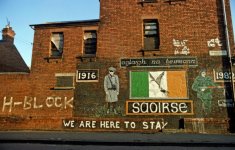

Steel and Williams also held ambitions to bring peace to Northern Ireland, the province carved off from its southern republican neighbour as a British colony and beset by violence that had grown out of all control in recent decades. The Government would adopt a non-sectarian approach predicated on sustaining the Assembly formed in 1982 and weakened by abstentions from the Irish nationalist parties. Former liberal Tory Nick Scott, the secretary of state, pursued a settlement of widest possible appeal to unionists and republicans alike. "I think everybody understands that British sovereignty is very close to the heart of the Alliance but, properly, we should also be concerned with the rights of civilians, with an end to bloodshed, with families torn apart, with Catholics and Protestants." London had conducted unsuccessful negotiations with Dublin to broker peace, leading to the 1981 Anglo-Irish Intergovernmental Council. Nonetheless, it petered out once hunger strikes had ended in tragedy, radicalising nationalist protesters against Thatcher's hard line. Ireland even backed Argentina in its victorious struggle over Las Malvinas. Republican attacks on the British mainland continued. On 17 December 1983, a Provisional IRA car bomb killed six people and injured 90 outside the Harrods store in central London. The extent of harm debased the IRA's support, although the bombing was not centrally authorised. Steel condemned an "indiscriminate act of terrorism". Behind closed doors, his Government held discussions with Garret FitzGerald, the Irish Taoiseach. Both the nationalist and unionist communities had become extremely polarised and belligerent; human rights violations were not uncommon due to the spread of paramilitary units. SDLP leader John Hume had worked on a report by the New Ireland Forum, to be published in May 1984. It would recommend three options to solve the Troubles and find peace: either a federal united Ireland, a looser confederation or joint sovereignty between Dublin and London over the north. While Mrs Thatcher had insisted that a surrender of British control was "out", triggering the intervention of President Reagan, the Northern Ireland secretary kept an open mind. Under clearance from the Prime Minister, who considered requesting European aid to police the rebellious province, Scott ensured that joint sovereignty remained firmly on the table.

Last edited:
Liberal and SDP members celebrated the Government's first birthday at the helm of British politics in January 1984, one year after a spectacular triumph at the ballot box over the Tories and Labour. Before pressing ahead with a second round of economic and social domestic legislation, the Alliance leadership convened at the National Liberal Club in Whitehall to thrash out policy. David Steel, his party deputy and Home Secretary Alan Beith, and Defence Secretary Russell Johnston represented the Liberals. The Gang of Four (Deputy Prime Minister/First Secretary of State Shirley Williams, Chancellor Bill Rodgers, Foreign Secretary David Owen and party deputy Roy Jenkins) led the SDP coterie. The PM had been able to advance key Liberal objectives, turning wilderness fantasies such as a land value tax or cancellation of Polaris renewal into reality. As such, Steel's reputation with both grassroots members and the voting public at large stood at an all-time high. The same was true of Mrs Williams. They had succeeded in putting forward credible, radical, progressive answers to political malaise, rocketing through the polls into coalition and overturning their environment. Credit was given by new MPs and activists to the senior leaderships. Rebels guarded their party traditions fearlessly. Applications came flooding in over early 1984 for joint open selection of candidates for the looming European Community vote. Settling down for a congratulatory and important meeting, the Liberal and SDP teams addressed this: in its new Queen's Speech, the Government would introduce a European Parliamentary Elections Bill. Replacing first-past-the-post, British candidates would be elected using a closed-list party system method of proportional representation known as the D'Hondt method. Local members from both Alliance parties would decide together who their regional candidates would be. The bill was rushed through the Commons. To get the reform on statute by June, Steel and Williams created 200 Liberal and SDP peers to assist its passage. Receiving royal assent in April, the law divided Britain into twelve electoral regions, nine in England and one in Scotland, one in Wales and one in Northern Ireland. 81 MEPs would still be elected from the UK.
The Alliance leadership harmoniously deliberated which items of their manifesto agenda would be implemented next. Government ministers were told to produce white pipers for consultation on the following:

The Alliance leadership harmoniously deliberated which items of their manifesto agenda would be implemented next. Government ministers were told to produce white pipers for consultation on the following:
- Oil and Gas (Modernisation) Bill to re-nationalise the exploration and production sector of the British National Oil Corporation;
- Single Benefit Bill, replacing all the major benefits - Family Income Supplement, housing benefits, free school meals, Supplementary Benefit - with a simpler, single benefit. The size for each family would depend on housing costs and the number of children;
- Communities Bill: reversing Thatcher's "offensive and discriminatory" British Nationality Act 1981. Immigration controls would be applied without discrimination on grounds of sex, race or colour, and rules on dependents would be revised to promote family unity.

Last edited:
At the spearhead of planning for Britain's economic future sat the Prime Minister David Steel and neighbour at Downing Street, Bill Rodgers. February 1984 rolled around and it became time for the Chancellor to lay out his second budget, worked on together with the Liberal Chief Secretary to the Treasury, David Penhaligon. At the despatch box surrounded by noisy MPs in the House of Commons, Rodgers stood defiant. "Progress is being made with reversing Tory and Labour under-investment, which over the last decade has been little short of catastrophic." The Chancellor boasted theatrically. "Spades are in the ground with our selective programme of capital investment in the water and sewerage systems, electrification of railways, building repairing of roads, rebuilding and refurbishing hospitals, investing in housing, improving transport services and developing energy conservation schemes." Liberal members cheered. "Unemployment is down by 200,000 from a year ago, owing to a united national effort and government intervention. I pay tribute here to my colleague the Employment Secretary [Richard Wainwright]. This incredible achievement has restored the public coffers with higher tax revenues and lower benefit payments." An SDP man of the left, Rodgers shared with Shirley Williams and David Owen (the 'Gang of Three') a project to replace Labour as the most popular anti-Conservative force in British politics. Roy Jenkins' centrist agenda, which chimed with David Steel's liberalism, was being carried out at the same time. There were now more SDP MPs in the Commons than any other party. Rodgers manoeuvred the Treasury to fire at Tony Benn's ranks. "We will end subsidies to private schools, including their charitable status. No longer will fee-paying institutions win government favour. Education is a human right, not a privilege. Our bright and enduring focus is on developing Britain's network of comprehensives." Mrs Williams' egalitarian fingerprints were all over these social reforms. Having raised public borrowing for a fiscal stimulus in the 1983 emergency budget, Rodgers embarked on a bold programme of tax reform."The Government will reverse its predecessor's increases in the high rate tax bands. We will concentrate the funds available from state borrowing for tax reductions in areas where tax cuts have a direct impact on prices, such as the abolition of the National Insurance Surcharge (the 'tax on jobs'). In this way, we can keep prices down as growth is stepped up. We will stop the nationalised industries being forced to raise prices for gas and electricity merely to increase Government revenue."

Denis Healey and allies shuffled uncomfortably on the Labour backbenches. Old comrades in a new party had teamed up with the dastardly Liberals to steal their clothing. Some of the more careerist Labour right-wingers probably wished they'd jumped ship in the early days, now that wild man Benn and his upstarts were steering the Titanic. Rodgers kept on. His budget would:
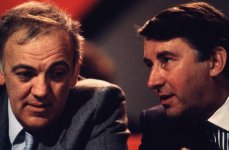

Denis Healey and allies shuffled uncomfortably on the Labour backbenches. Old comrades in a new party had teamed up with the dastardly Liberals to steal their clothing. Some of the more careerist Labour right-wingers probably wished they'd jumped ship in the early days, now that wild man Benn and his upstarts were steering the Titanic. Rodgers kept on. His budget would:
- "Increase the exemption limit for Corporation Tax relief on Inland Revenue approved profit-sharing and share-ownership schemes to £3,000 per employee."
- "Give specific encouragement to co-operatives through increased funding for the Co-operative Development Agency - to provide advice and financial support for those setting up co-operatives."
- "Undertake the first stage of phasing out the married man's tax allowance."
- "Set up a single, independent Assessment Board for public service pay to provide fair comparisons. Our schools and hospitals will benefit. Agreed arrangements for arbitration will be needed. As a result, public service sector pay will grow at broadly similar rates to that of comparable groups in the private sector."

Last edited:
Within the Coalition, factional power-plays began to materialise. Professional relationships between the Liberals and SDP were happy; the two parties found most areas of commonality over the growth agenda, subsidies to business and foreign affairs. Shirley Williams acted as chief mediator and trouble-shooter whenever disputes or challenging events cropped up; she played to all wings of the SDP as its leader to actively promote a united front to the public and in negotiations with the Liberal Party. Roy Jenkins, heavyweight political veteran as Chancellor and Home Secretary in the 1960s, sought to formally entrench his level of influence. He was intensely aware that while his allies had been promoted and a fairly moderate economic policy carried out, he did not hold one of the meatier departments. Williams agreed to lobby David Steel, who enthusiastically appointed Jenkins to Minister of Policy Development with Richard Holme (one of the cautious PM's more agile confidants) as his understudy. This role meant, given his pre-existing role (as Lord President of the Council, a Great Office of State responsible for presenting state business to the Queen), that Jenkins could trace his combined roles all the way from formation of policy ideas to their implementation in government. His star was no longer on the wane. Young protégé Matthew Oakeshott, a left-leaning SDP EEC federalist, was appointed Minister for Europe. The Cabinet met on 20 February to discuss the progress of individual bills. Three items - social security, education and training, and environment, housing and public investment - were almost ready to be signed into law. Steel urged a firm line on the trade union bill; in 1982, his now-partners had abstained on a vote for Norman Tebbit's harsh reform legislation. It seemed that the Alliance couldn't decide whether to weaken Labourism or focus on dismantling Britain's conservative traditions. Mrs Williams opted for both, contemplatively responding with praise of joint policy-making between the similar but unique SDP and Liberals. Round the Cabinet table, she commended the Government's "social justice politics". Jenkins reminded colleagues that the Coalition's main priority was a reduction in the number of unemployed to a million by 1987, without any inflation spike.
Alan Beith laid out the Home Department's plans for a Bill of Rights Act, alluded to in the 1983 Queen's Speech but tied up in a quagmire of legal wrangling ever since then. The bill would incorporate the European Convention's list of freedoms into British law. Commons leader David Alton described the passage of work on electoral reform and industrial democracy as "running smoothly". In truth, debates in Parliament often turned quite bitter. Willie Whitelaw spent February reaching out to Tory right-wingers on the trade union proposals, eager to win their approval while showing a flexible adherence to bipartisanship with the Alliance. Their reaction to a change in the electoral method was desperately muddled. Whitelaw gave his party a free vote in the bill's third reading. Many instead abstained. Tebbit's wing opposed the legislation with gusto. A handful backed the Government due to either a principled stance or the hope of more seats in a representative system. Their patrician leader refused to dismiss any rebels. Members of the Thatcherite Conservative Workers' Group (CWG) went mad, threatening to send in letters to the backbench 1922 committee in a bid to topple Whitelaw. Labour opposition was potent. Addressing MPs during a debate on the creation of a Scottish assembly, Tony Benn's employment spokesman Don Dixon disparaged the notion on the grounds that Scotland already benefited excessively from the UK at the cost of the north-east of England. Tam Dalyell called devolution a "motorway" that would lead to the demand for independence. Although the Coalition's landmark bills moved safely through each stage, dissident SDP and Liberal MPs had to be constantly appeased. None of it harmed the governing parties' standing among voters. It demonstrated open, healthy collaboration - a new way.
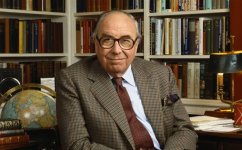
Alan Beith laid out the Home Department's plans for a Bill of Rights Act, alluded to in the 1983 Queen's Speech but tied up in a quagmire of legal wrangling ever since then. The bill would incorporate the European Convention's list of freedoms into British law. Commons leader David Alton described the passage of work on electoral reform and industrial democracy as "running smoothly". In truth, debates in Parliament often turned quite bitter. Willie Whitelaw spent February reaching out to Tory right-wingers on the trade union proposals, eager to win their approval while showing a flexible adherence to bipartisanship with the Alliance. Their reaction to a change in the electoral method was desperately muddled. Whitelaw gave his party a free vote in the bill's third reading. Many instead abstained. Tebbit's wing opposed the legislation with gusto. A handful backed the Government due to either a principled stance or the hope of more seats in a representative system. Their patrician leader refused to dismiss any rebels. Members of the Thatcherite Conservative Workers' Group (CWG) went mad, threatening to send in letters to the backbench 1922 committee in a bid to topple Whitelaw. Labour opposition was potent. Addressing MPs during a debate on the creation of a Scottish assembly, Tony Benn's employment spokesman Don Dixon disparaged the notion on the grounds that Scotland already benefited excessively from the UK at the cost of the north-east of England. Tam Dalyell called devolution a "motorway" that would lead to the demand for independence. Although the Coalition's landmark bills moved safely through each stage, dissident SDP and Liberal MPs had to be constantly appeased. None of it harmed the governing parties' standing among voters. It demonstrated open, healthy collaboration - a new way.

Last edited:
In March 1984, David Steel appointed Eric Varley, who had just retired from Parliament as a Labour MP, to head the National Coal Board (NCB). A miner's son and former engineer himself, the centrist but non-factional Varley seemed a perfect fit to steer the Government's reforms of the sector. His abiding loyalty was to the mining community. SDP Energy Secretary Ian Gilmour laid out the plans in a widely trailed speech. "For the foreseeable future, coal will continue to supply a large part of our major energy needs. To ensure the continued prosperity of the coal industry we will make substantial investments in the modernisation of techniques and capacity. This does not mean a dramatic schedule of pit closures. There will be some employment problems - where the oldest deep pits are coming to the end of their economic life. The Alliance plans for jobs and industry are designed to give particular help to areas like these where new employment is needed." Mr Varley supported these goals. Shirley Williams appealed to miners by setting out plans to fund training, emergency loans and other support for workers who had lost their means of income. The Government promised to create "highly skilled, well-paid union jobs" in other parts of the energy sector. Varley also held a concern about the natural environment; therefore, he advocated investment and retraining for ex-miners to work on new technology and power sources, e.g. solar and wind. However, fiery socialist President of the NUM Arthur Scargill rejected the idea that loss-making pits were "uneconomic". Thatcher's directives had contributed to the stock-piling of coal in anticipation of a battle with the unions. On 2 April, the NCB announced that to reduce state subsidies and move towards diverse energy production, five collieries would close, affecting 5,000 jobs. Scargill called for a strike.
The Trade Union Reform Act had come into effect after passing through both Houses of Parliament in late March. It required by law that 10% of a bargaining unit (in this case, the NUM) must hold a vote before any official industrial action. Politicians, the media and sections of the union argued for a nationwide ballot. Scargill had been reluctant to support this following 1982, when NUM members accepted a 9.3% pay rise and chose not to strike. David Owen urged fellow ministers to stand firm. The miners under Scargill, he argued, must be beaten "in the name of economic and political sense". Radical, often younger union members pushed for a 'yes' vote on industrial action. Labour leader Tony Benn gave unwavering vocal backing to Scargill. At a Militant tendency rally, he said: "The labour movement is not engaged in a personalised battle against individual cabinet ministers, nor do we seek to win public support by arguing that the crisis could be ended by the election of a new and more humane team of ministers who are better qualified to administer capitalism. We are working for a majority Labour government, elected on a socialist programme, as decided by conference." Scargill and the 'yes' campaign distributed posters, ballot papers and leaflets. 'No' campaigners pointed to the Government's costed plan for a "just transition" and encouraged workers to accept it. Emotions ran high and there were outbreaks of violence. On 26 April, a national ballot was held. NUM members voted 53% against the strike with 47% in favour. Immediately afterwards, Bill Rodgers pleaded publicly for a settlement. Events had deeply divided mining families in towns across northern England, Scotland and Wales. The Prime Minister reached out, pledging that his team would "manage carefully" a transition out of coal production in keeping with the post-war consensus. Workers' voices and the economic security of communities would come first. Steel announced a programme of rebuilding and investment in those areas as the five mines were closed. "Our priority will always be job creation and training, placing lives before the untrammelled market."
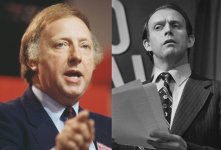
The Trade Union Reform Act had come into effect after passing through both Houses of Parliament in late March. It required by law that 10% of a bargaining unit (in this case, the NUM) must hold a vote before any official industrial action. Politicians, the media and sections of the union argued for a nationwide ballot. Scargill had been reluctant to support this following 1982, when NUM members accepted a 9.3% pay rise and chose not to strike. David Owen urged fellow ministers to stand firm. The miners under Scargill, he argued, must be beaten "in the name of economic and political sense". Radical, often younger union members pushed for a 'yes' vote on industrial action. Labour leader Tony Benn gave unwavering vocal backing to Scargill. At a Militant tendency rally, he said: "The labour movement is not engaged in a personalised battle against individual cabinet ministers, nor do we seek to win public support by arguing that the crisis could be ended by the election of a new and more humane team of ministers who are better qualified to administer capitalism. We are working for a majority Labour government, elected on a socialist programme, as decided by conference." Scargill and the 'yes' campaign distributed posters, ballot papers and leaflets. 'No' campaigners pointed to the Government's costed plan for a "just transition" and encouraged workers to accept it. Emotions ran high and there were outbreaks of violence. On 26 April, a national ballot was held. NUM members voted 53% against the strike with 47% in favour. Immediately afterwards, Bill Rodgers pleaded publicly for a settlement. Events had deeply divided mining families in towns across northern England, Scotland and Wales. The Prime Minister reached out, pledging that his team would "manage carefully" a transition out of coal production in keeping with the post-war consensus. Workers' voices and the economic security of communities would come first. Steel announced a programme of rebuilding and investment in those areas as the five mines were closed. "Our priority will always be job creation and training, placing lives before the untrammelled market."

Last edited:
Stepping out to make its mark on the world stage, the British Government applied a policy based on a set of liberal aims - closer union with Europe, a critical friendship with America, promotion of human rights and interventionism via NATO and the UN. The Foreign Office yielded to pressure from other countries to apply financial sanctions on South Africa, in a bid to end the white supremacist apartheid system. The UK, as South Africa's most important trading partner, held considerable sway over its economic future; henceforth, British firms became unable to operate and invest there. David Steel called upon South Africa to release jailed ANC leader Nelson Mandela, ease up on the harassment of black rebels and withdraw from bombing and incursions on neighbour states in accordance with UN Security Council resolutions on the matter. Steel received anti-apartheid bishop Desmond Tutu in London and kept in touch with India to formulate a united strategy. Foreign Secretary David Owen ultimately revealed Britain's policy: to impose a total embargo on South African products and back the existing sanctions levelled by other Commonwealth members. Additionally over the next few months, discussions about the status of Hong Kong reached a crucial stage. Steel visited China and offered to hand the colony (along with the leased New Territories) to Beijing by 1997 on the condition that both sides would recognise and protect Hong Kong's special economic circumstances for fifty years. The British PM and Chinese leader Deng Xiaoping would sign the deal on 19 December 1984. In the meantime, Mr Steel pivoted towards the UK's blossoming relationship with Europe. Following cordial talks with counterparts in France, Italy and West Germany, he offered a grand bargain: to end Britain's rebate (a mechanism to reduce its contribution to the EEC budget) and, in so doing, raise a larger pool of revenue for the organisation; to work together on a fairer method of contribution from member states; and, in return, to accomplish some reduction in the European agriculture budget. Steel's offer was welcomed, particularly by smaller members like Greece and Portugal; the Commission undertook efforts through 1984-85 to undertake these reforms. On 2 May 1984, Argentina invaded Chile. In a bloody war that gravely disappointed Britain, the Junta's military forces would succeed, conquering the Beagle Islands and triggering the downfall of Augusto Pinochet's right-wing dictatorship in Santiago. Argentina immediately paid a cost with international sanctions.
May also heralded the publication of the New Ireland Forum report. Of its three recommendations - a federal unification, confederation or shared sovereignty - the first two were ruled out by Britain entirely. In Cabinet, members of the UK Government quarrelled over whether to adopt, with the Republic, joint sovereignty of Northern Ireland between them. Mr Owen laid out his views: he would support cooperation in the quest for peace, but terrorism must be prevented at all costs. The Cabinet were split over whether conceding to the milder demands of Irish nationalists would reduce violence - on the one hand, there was a possibility of IRA bombings decreasing; then again, joint control would provoke a unionist backlash. Shirley Williams, Roy Jenkins and Bill Rodgers favoured it as a fair compromise. The Prime Minister instinctively liked the idea of power-sharing - indeed, this was the Government's ethos. He consulted the Liberals' sister party in Northern Ireland, the Alliance Party. Both espoused a non-sectarian approach to the problems of the province. Steel told ministers he resolutely backed the Assembly and devolution. After consulting Belfast and Dublin, the UK Government would co-design a "unity administration" amounting to joint sovereignty, the institutions of which should be developed as time goes on, to represent all communities in the North. Ted Heath and his faction of the SDP worried about the result, as did a few older unionists from the ex-Labour ranks. President Ronald Reagan visited Ireland in June, expressing his happiness with the Brits' conciliatory stance. Even before further talks and the negotiation of a treaty to establish joint sovereignty, loyalists became incensed. the Democratic Unionist and Ulster Unionist parties held conversations about a forming an electoral pact. Anti-republican disobedience in Northern Ireland, sparking a wave of sectarian violence and brutal paramilitarism, reared its ugly head as the price for Stormont dialogue.
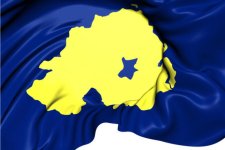
May also heralded the publication of the New Ireland Forum report. Of its three recommendations - a federal unification, confederation or shared sovereignty - the first two were ruled out by Britain entirely. In Cabinet, members of the UK Government quarrelled over whether to adopt, with the Republic, joint sovereignty of Northern Ireland between them. Mr Owen laid out his views: he would support cooperation in the quest for peace, but terrorism must be prevented at all costs. The Cabinet were split over whether conceding to the milder demands of Irish nationalists would reduce violence - on the one hand, there was a possibility of IRA bombings decreasing; then again, joint control would provoke a unionist backlash. Shirley Williams, Roy Jenkins and Bill Rodgers favoured it as a fair compromise. The Prime Minister instinctively liked the idea of power-sharing - indeed, this was the Government's ethos. He consulted the Liberals' sister party in Northern Ireland, the Alliance Party. Both espoused a non-sectarian approach to the problems of the province. Steel told ministers he resolutely backed the Assembly and devolution. After consulting Belfast and Dublin, the UK Government would co-design a "unity administration" amounting to joint sovereignty, the institutions of which should be developed as time goes on, to represent all communities in the North. Ted Heath and his faction of the SDP worried about the result, as did a few older unionists from the ex-Labour ranks. President Ronald Reagan visited Ireland in June, expressing his happiness with the Brits' conciliatory stance. Even before further talks and the negotiation of a treaty to establish joint sovereignty, loyalists became incensed. the Democratic Unionist and Ulster Unionist parties held conversations about a forming an electoral pact. Anti-republican disobedience in Northern Ireland, sparking a wave of sectarian violence and brutal paramilitarism, reared its ugly head as the price for Stormont dialogue.

Last edited:

